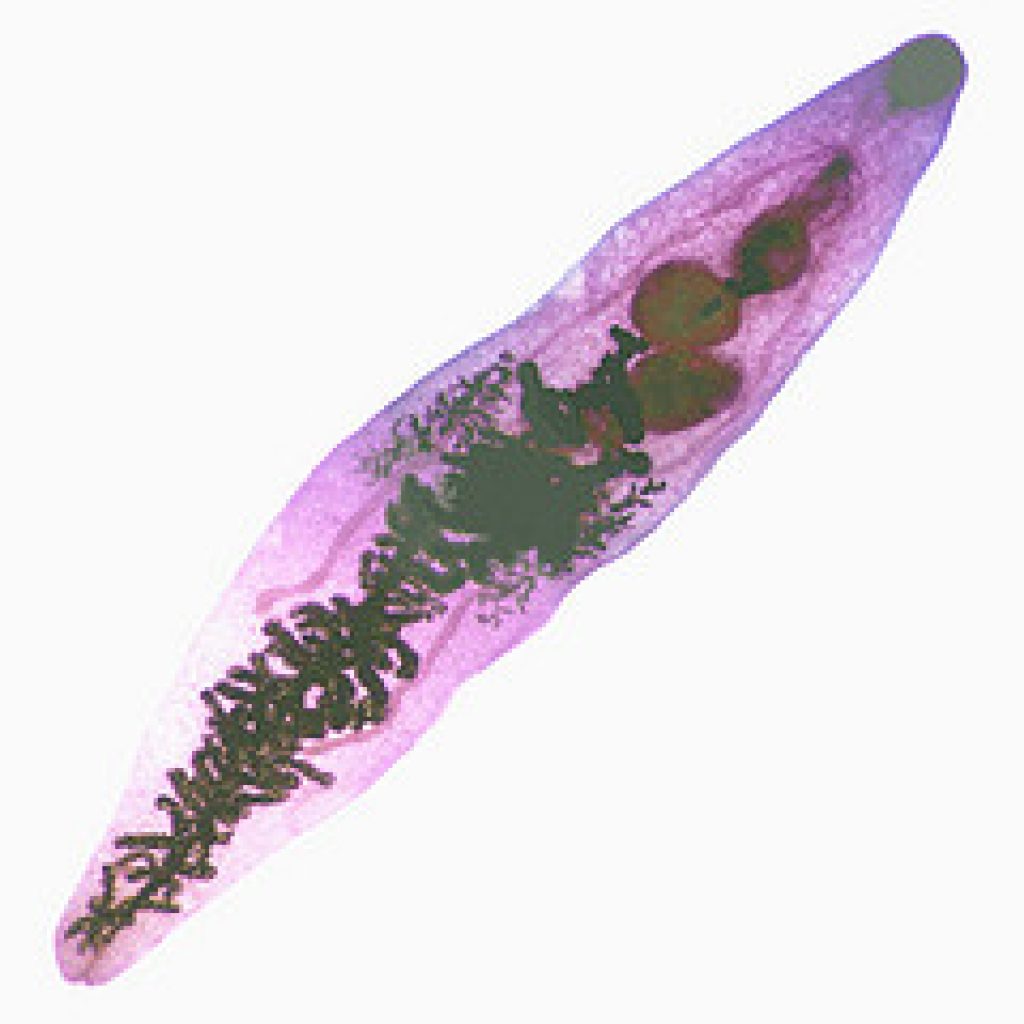
AsianScientist (May 8, 2012) – Investigators from Singapore and Thailand have completed a large-scale survey of mutations found in bile duct cancer, a deadly form of cancer that is associated with infection of the liver by a type of parasitic flatworm known as a liver fluke.
The study, published online in Nature Genetics this week, is the most comprehensive analysis of gene mutations in this cancer type, also known as cholangiocarcinoma. The researchers uncovered several genes that were not previously implicated in cholangiocarcinoma and is an important step toward the development of diagnostic tools and drugs for early detection and treatment of this usually deadly cancer.
The cancer-causing liver fluke, Opisthorchis viverrini (OV), is a food-borne parasite that currently infects more than 40 million people, mainly in the Southeast Asian countries of Thailand, Laos, and Cambodia. In these countries, raw fish from rice fields and ponds carrying the liver fluke continue to be widely consumed despite warnings from medical experts.
Once eaten, the flukes accumulate in the bile ducts of the human host, causing constant infection and the onset of cancer. Cooking the fish eliminates the parasite while OV has not been detected in saltwater fishes.

Only ten percent of cholangiocarcinoma patients survive because they detected the disease early. But these are rare as symptoms do not usually appear until the final stages. In Thailand, 50 people die every day because of this fatal cancer, a vast majority of them from the northeastern part of the country where OV infection is thought to occur in over six million people.
Scientists from the National Cancer Center and Duke-NUS Graduate Medical School in Singapore worked with Thai researchers to screen for mutations within 18,000 human genes in tumor samples from OV-infected cholangiocarcinoma patients. Working with a total of more than 50 samples from OV-associated cholangiocarcinoma patients, they uncovered a spectrum of gene mutations implicated in bile duct cancer.
Other than finding genes that have been previously linked to bile duct and other cancers, the research team also discovered frequent mutations in several genes that have not previously been implicated in the development of bile duct cancer. It is hoped that these gene mutations may be used as biomarkers for detecting the disease early.
“With this finding we now know much more about the molecular mechanisms of the disease and we can draw up additional measures that can be taken while we identify the most appropriate treatment protocols. We are talking about the potential to save many lives in Thailand,” said Prof. Vajarabhongsa Bhudhisawasdi, Director of the Liver Fluke and Cholangiocarcinoma Research Center at Khon Kaen University, which is located in a part of Thailand that has the highest incidence of cholangiocarcinoma in the world.
The article can be found at: Ong et al. (2012) Exome Sequencing Of Liver Fluke–Associated Cholangiocarcinoma.
——-
Source: Duke-NUS Graduate Medical School Singapore; Photo of Opisthorchis viverrini from www.microbiologybytes.com.
Disclaimer: This article does not necessarily reflect the views of AsianScientist or its staff.












